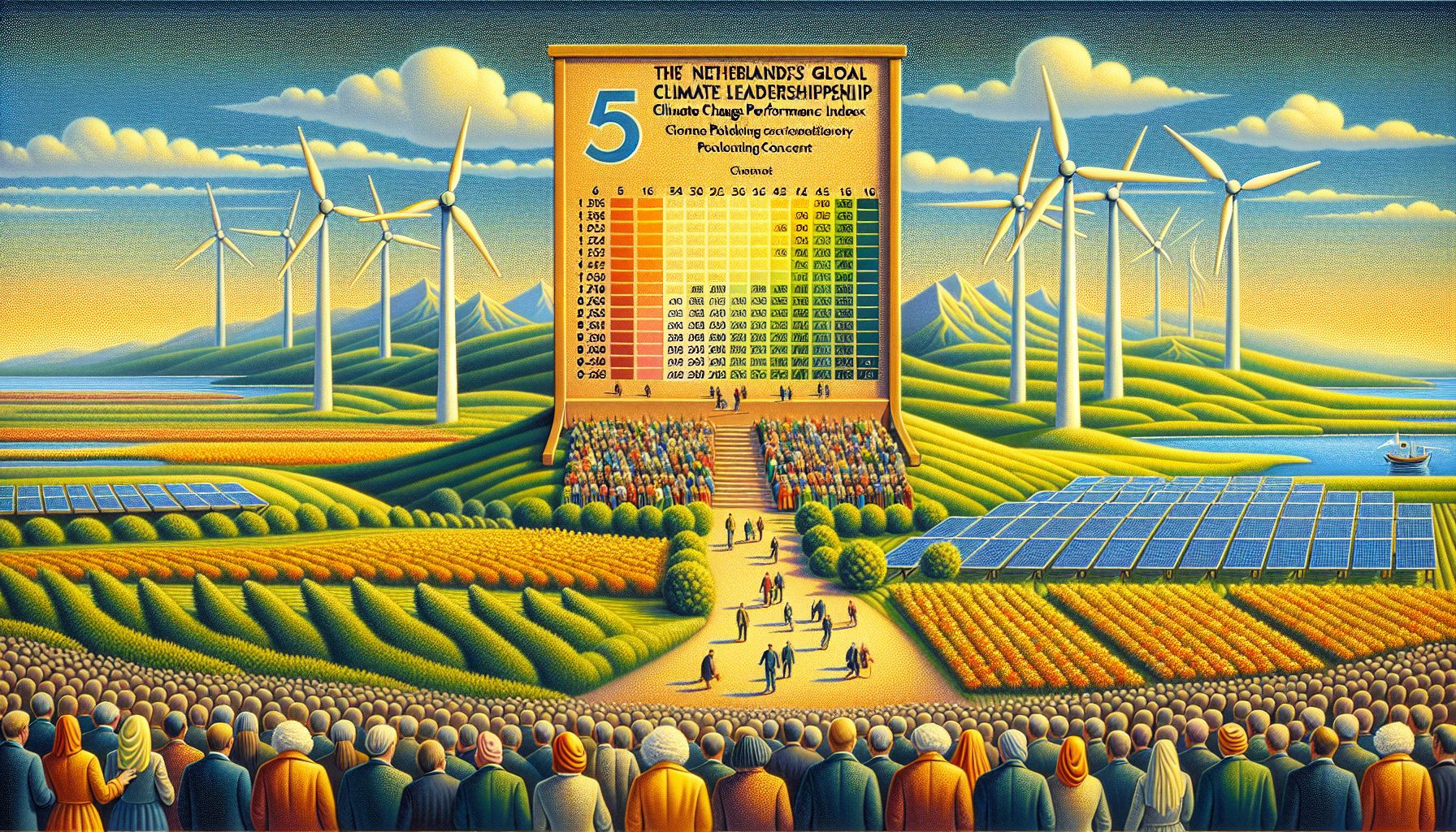Netherlands Surges to Global Climate Leadership, Ranks 5th in World Performance Index

The Hague, Thursday, 21 November 2024.
In a remarkable climate policy turnaround, the Netherlands has climbed from 29th place four years ago to 5th in the 2025 Climate Change Performance Index. This achievement is marked by successful CO2 reduction and renewable energy initiatives, particularly boasting Europe’s highest per capita solar capacity. However, experts express concern about potential policy rollbacks under the new government.
Green Innovations Driving Success
The Netherlands’ ascent to 5th place in the Climate Change Performance Index (CCPI) is largely attributed to its commitment to green innovations. A standout example is the country’s extensive investment in solar energy. Currently, the Netherlands boasts the highest per capita installed solar photovoltaic capacity in Europe. This achievement not only underscores the nation’s dedication to renewable energy but also highlights its strategic approach in reducing dependency on fossil fuels. The closure of the Groningen gas field in April 2024 marks a pivotal shift towards sustainable energy practices, further complemented by the ongoing construction of a CO2 transport network as part of the Porthos project[1].
Policy Challenges Under New Leadership
Despite these advancements, there are growing concerns about the new government led by Prime Minister Dick Schoof, which took office in July 2024. While the government maintains ambitious climate targets for 2030 and 2050, it has been criticized for weakening implementation efforts. Notably, measures promoting solar energy have been halted, raising alarms among environmental groups and climate experts. The government’s approach to EU nitrogen and water targets has also been described as weak, with indications that these efforts may further decline[2].
Future Outlook and Global Standing
The Climate Change Performance Index, published by Germanwatch, NewClimate Institute, and CAN International, serves as a critical barometer for assessing national climate policies. In this year’s ranking, Denmark and the Netherlands emerged as top performers among developed nations, underscoring their leadership in renewable energy and emissions reduction. However, the index also highlights a global challenge: no country achieved a ‘very high’ score, leaving the top three ranks vacant, indicating that even leading nations have considerable room for improvement[3]. The Netherlands’ journey from 29th to 5th place reflects significant progress, yet the path forward requires sustained commitment to innovative and robust climate policies.

